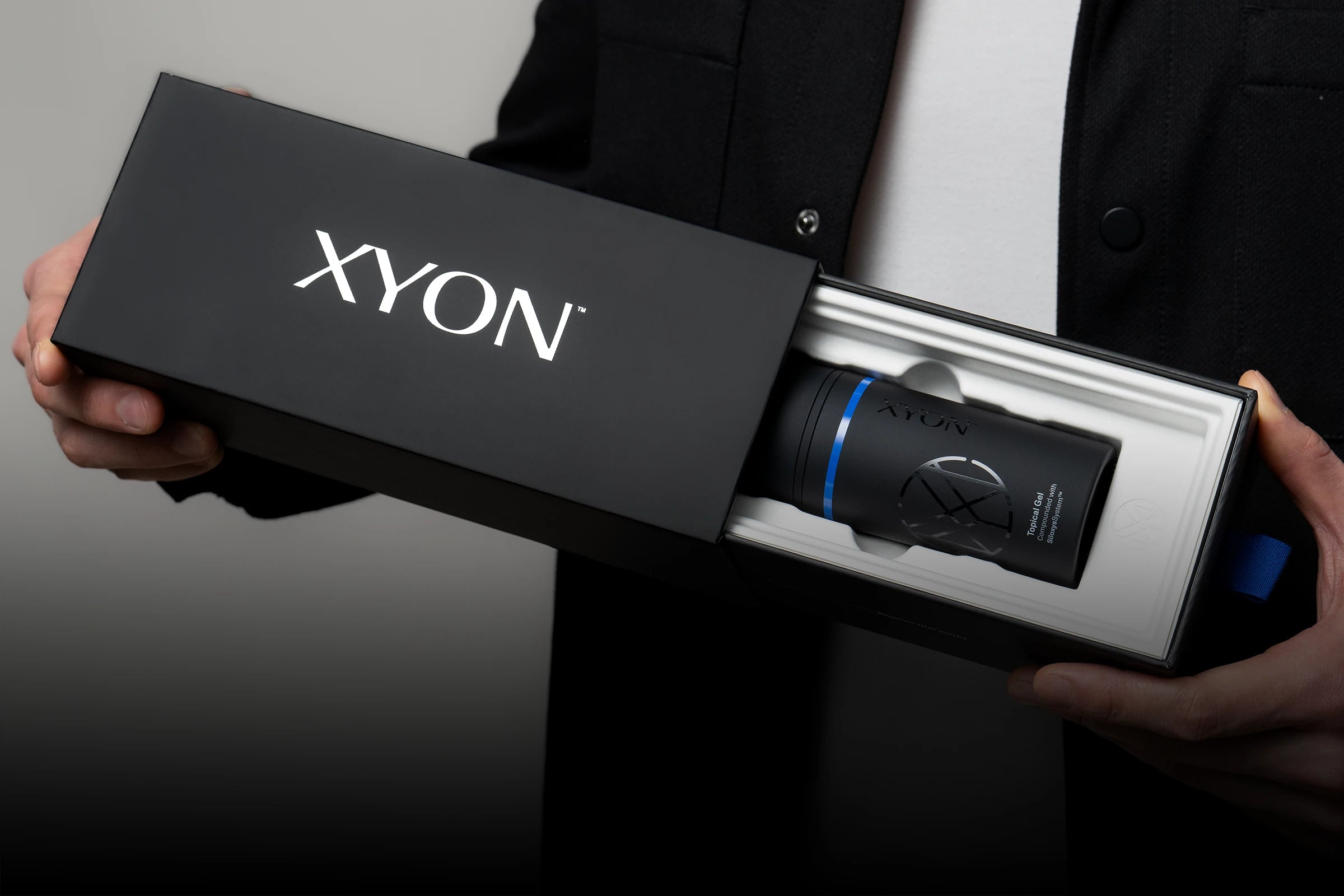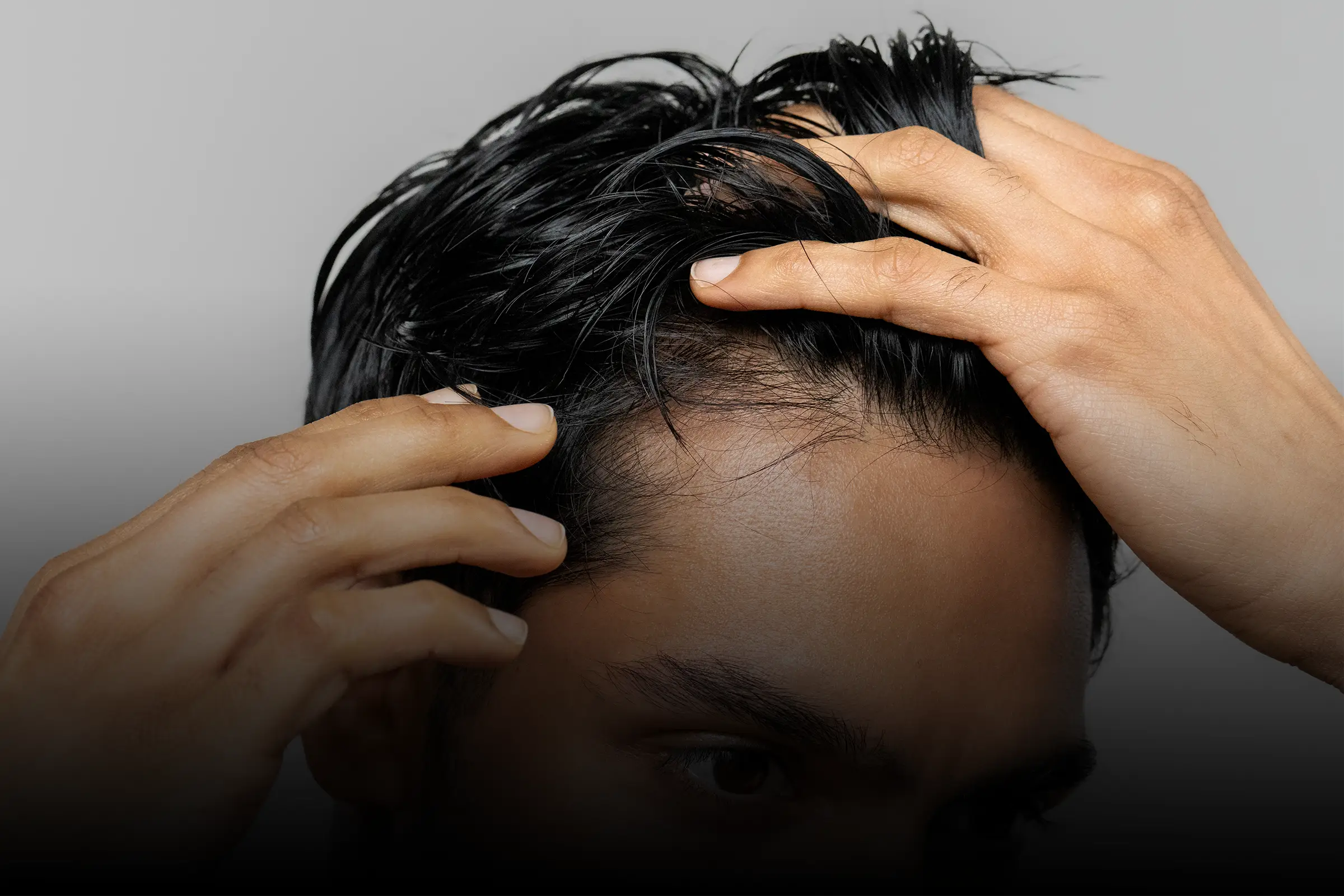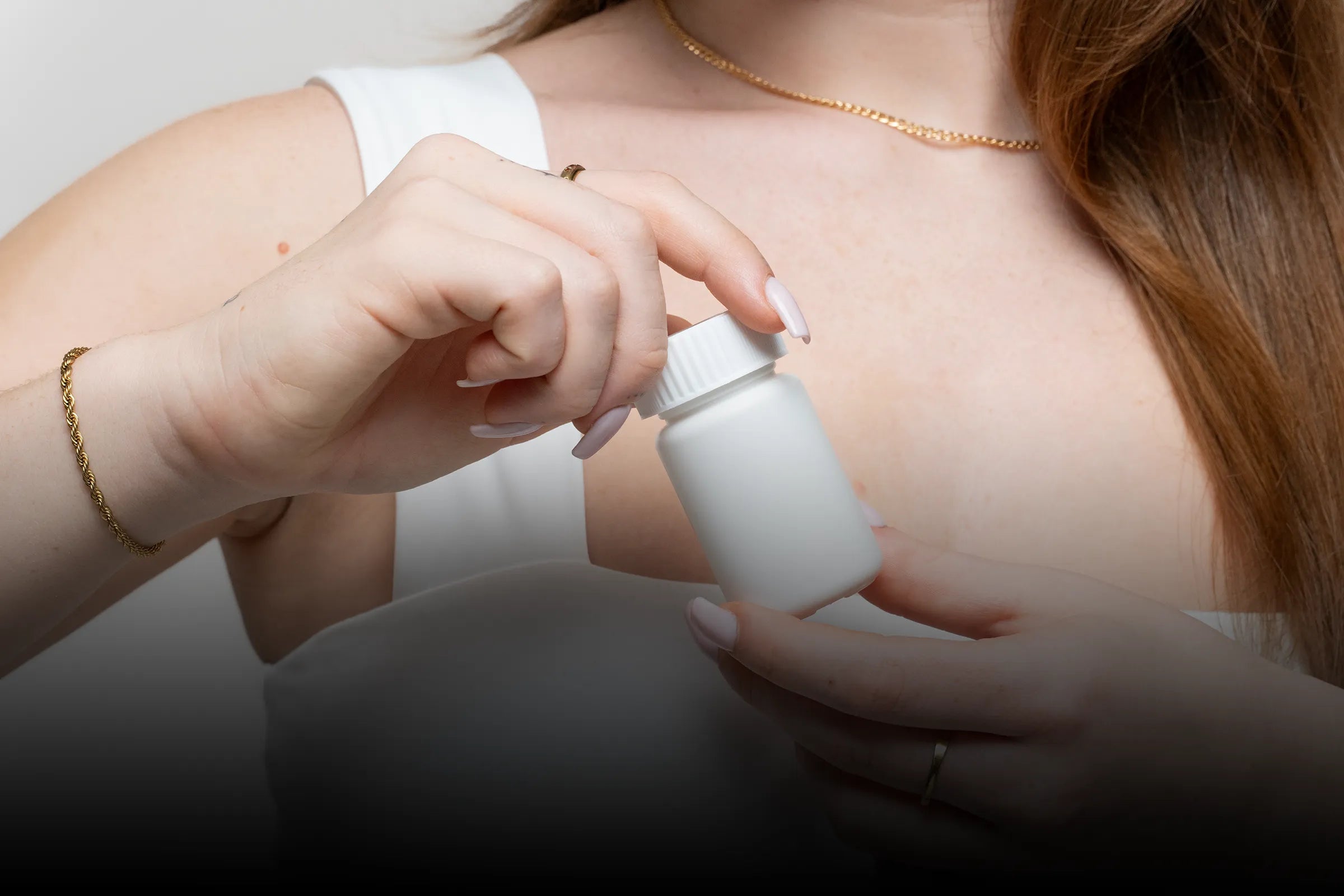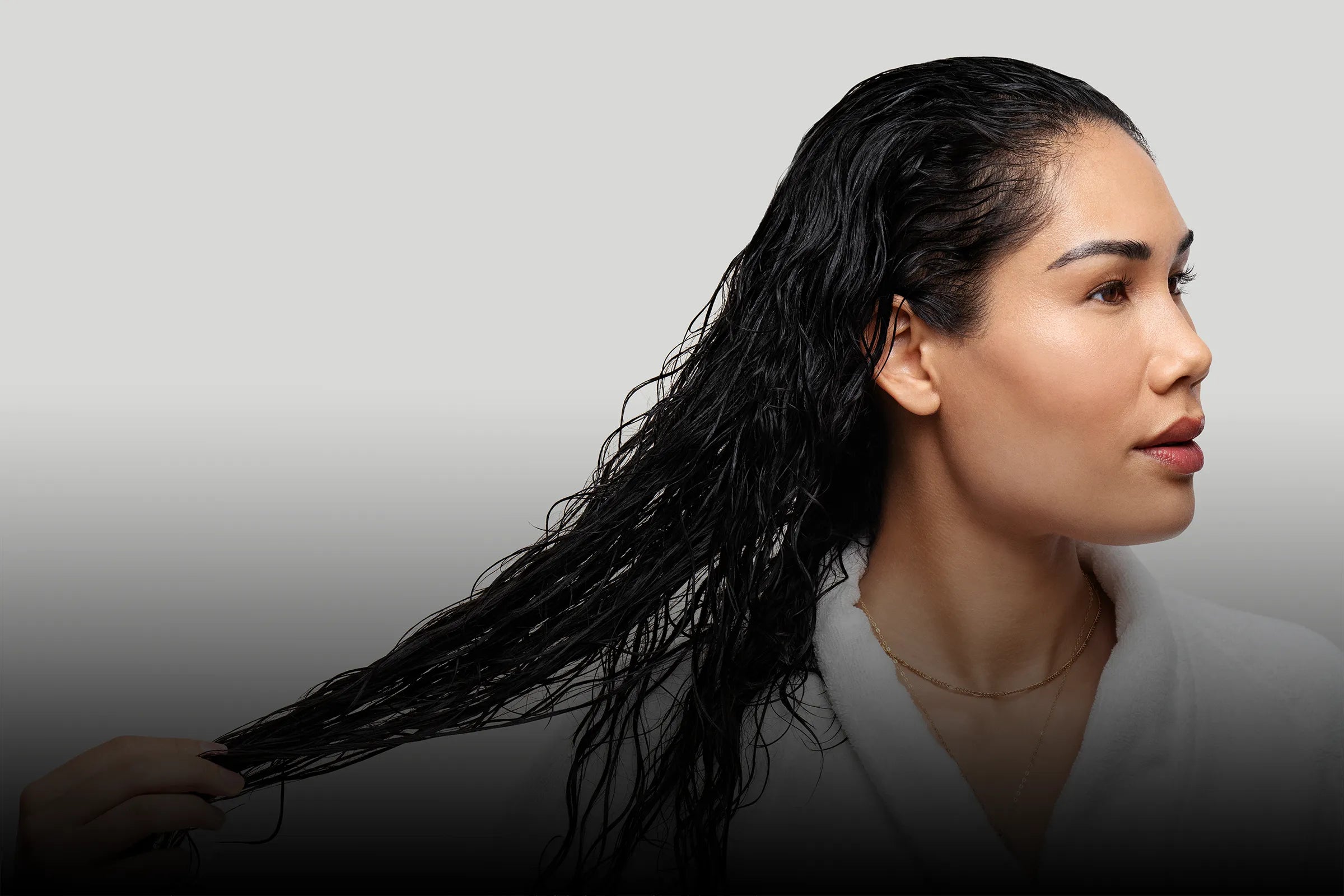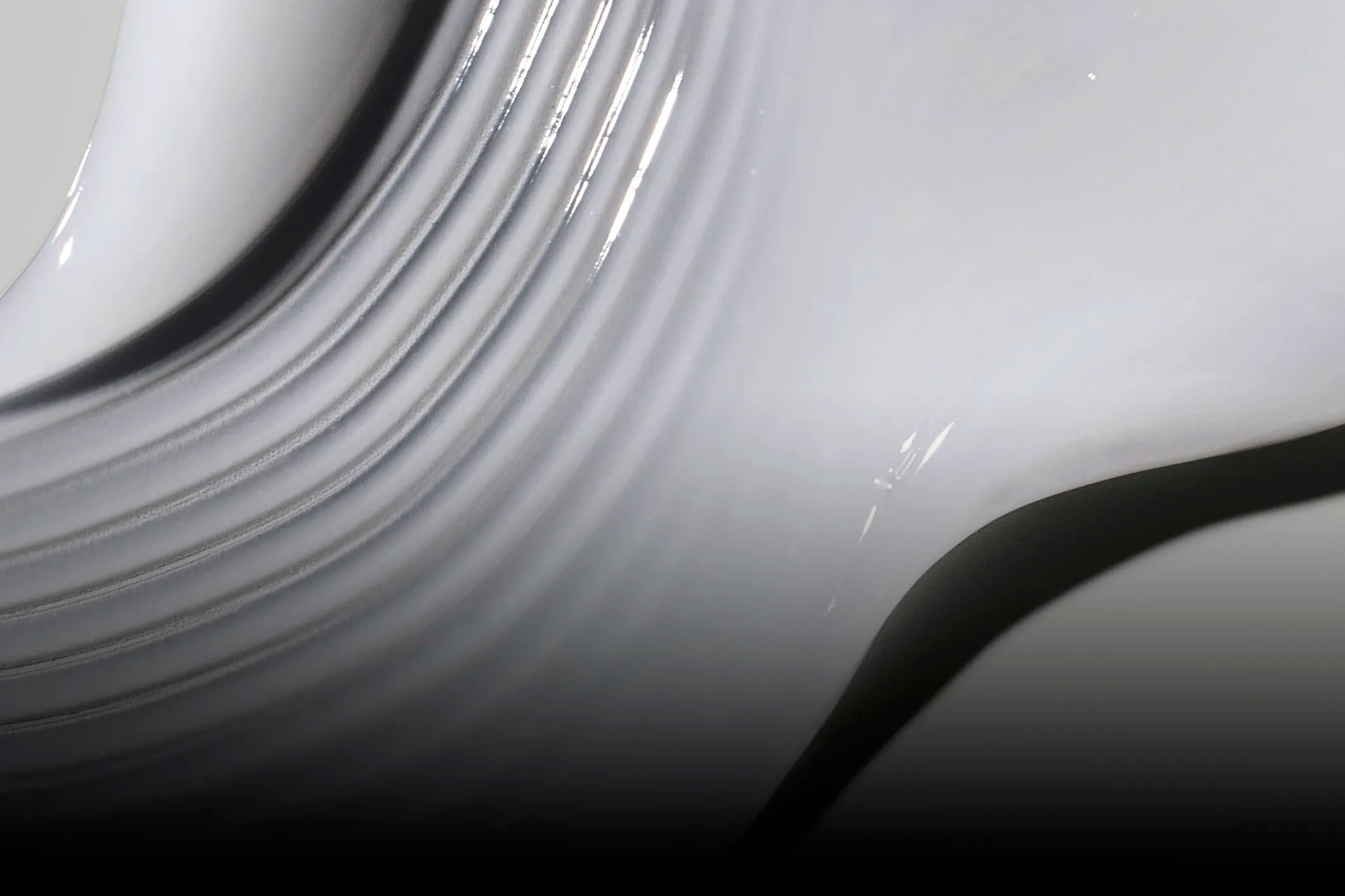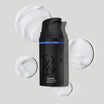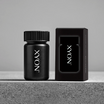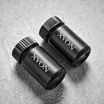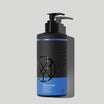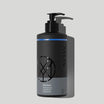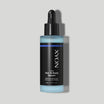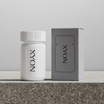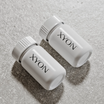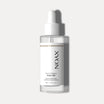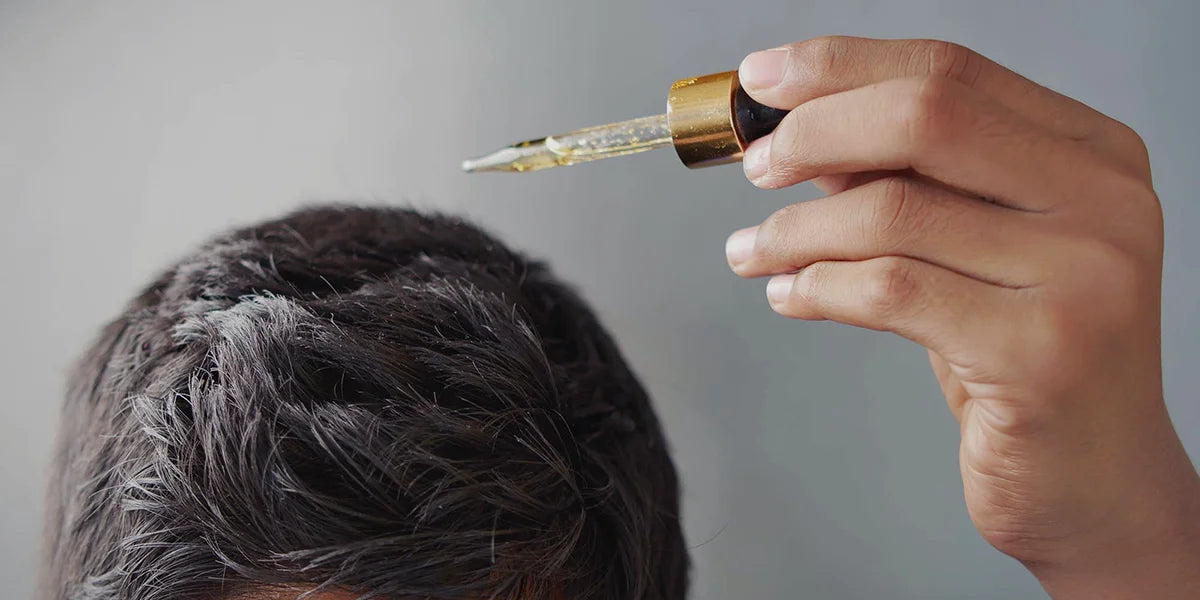The idea of using a “natural” treatment as opposed to synthetic medication is appealing to many people. The rosemary plant (rosmarinus officinalis) has been studied and shown to have anti-inflammatory, antioxidant and even anti-tumor activity in laboratory experiments. Because of these benefits, rosemary oil may be useful in maintaining scalp health and supporting hair growth.
In this article, we’ll discuss the differences between rosemary oil vs minoxidil in terms of efficacy in treating hair loss and answer the question of whether you can combine these two together to maximize your hair growth potential.
How does minoxidil work?
Minoxidil was first approved by the FDA to treat male pattern hair loss in 1988. In the years following, the agency approved the over-the-counter sale of minoxidil as a 2% topical solution and 5% topical foam. You may recognize it better as ROGAINE®. You’ll still need a prescription to buy oral minoxidil.
Despite being available for decades, the mechanism by which minoxidil promotes hair growth is not fully understood. Minoxidil is a potassium channel opener which acts on the blood vessels to dilate, or widen them. This increases blood circulation and the exchange of nutrients essential to maintaining the health of hair follicles. It’s believed that this improved circulation has a positive effect on the thickness of hair and hair growth in general.
XYON's natural women's hair loss solutions use the perfect blend of all natural ingredients known to help combat hair loss in women. 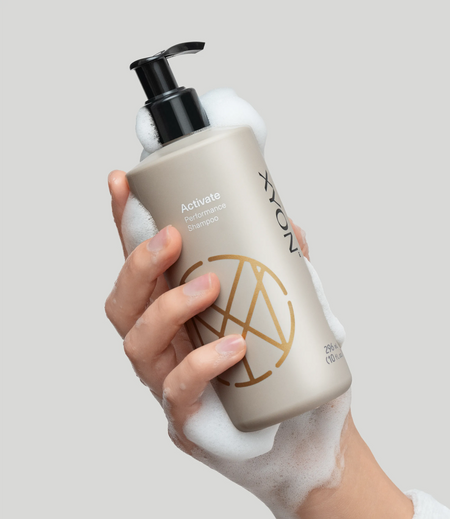

Our Women's Natural Hair Loss Solutions Are Available Now!
How does rosemary oil work?
The benefit of rosemary oil on hair and scalp health is probably related to its high antioxidant and anti-inflammatory content. Some of these compounds include carnosic acid, α-pinene, 1,8-cineole, camphor and borneol. These compounds help bind and neutralize free radicals, which are molecules that can be toxic to skin, hair follicle and blood vessel cells in high concentrations.
Other compounds such as caffeic acid, 1, 8-cineole and rosmarinic acid may have pro-circulatory benefits similar to minoxidil (Dhariwala and Ravikumar, 2019). In one study of rosemary extract for the prevention of atherosclerosis (the hardening of blood vessels that typically occurs with age), it was found to improve blood vessel function significantly (Sinkovic et al., 2010).
Compared to minoxidil, does rosemary oil really regrow hair?
Possibly, but evidence isn't strong. Quantitative research looking at rosemary oil’s effects on hair growth is limited, but one commonly cited trial of rosemary oil vs minoxidil suggests that there is a beneficial effect with twice daily topical application of rosemary oil for at least 6 months. At the 6 month time point, hair growth was observed in both the minoxidil and rosemary oil treatment groups, with a slightly higher incidence of itching as a side effect in the minoxidil group (Panahi et al., 2015).
There has been some research into the anti-androgenic, or DHT-lowering properties of rosemary oil. One animal study found that key compounds within rosemary oil may inhibit the 5-alpha reductase enzyme in a dose-dependent manner (i.e. higher concentrations of rosemary oil result in greater inhibition) (Murata et al., 2012). However, further research is needed in this area.
Is rosemary oil as effective as minoxidil for hair loss?
The jury is still out. A clinical study performed in 2015 compared rosemary oil vs minoxidil for hair loss. A hundred men were enrolled and divided into two groups (50 men used topical minoxidil 2% and 50 used rosemary oil). Each participant was asked to apply their assigned treatment twice daily for 6 months.
After 6 months of treatment, both groups apparently experience similar increases in hair counts with no difference in hair counts between the minoxidil and the rosemary oil groups. Furthermore, after 6 months of treatment, there was less itching in the rosemary oil group. Researchers suggest that there may be a clinical benefit to using rosemary oil for hair loss, supported by its apparent good tolerability (Panahi et al., 2015).
Despite these findings, it’s still difficult to say whether one treatment is better than the other. The design of the study raises a few questions and the concentration of minoxidil used in the study (2%) is lower than what is typically used in clinical practice (5%).
Is it ok to use rosemary oil and minoxidil together?
Likely. There is no evidence that says that combining rosemary oil with other topical solutions would reduce the efficacy of these treatments. But since it’s an oil, it could hinder the absorption of active pharmaceutical ingredients. To avoid this, we generally recommend that patients apply their prescription topicals first, following their doctor’s instructions and wait 4-6 hours before applying rosemary oil.
Side effects of rosemary oil vs minoxidil
The safety of rosemary oil has not been studied as rigorously as a pharmaceutical agent like minoxidil. It’s important to note that rosemary oil can only be taken topically and never by mouth. Side effects are generally rare but can include irritation and itching, as well as a contact allergy in those with sensitive skin. As with most other essential oils, there are certain compounds within these extracts that can trigger an allergic response in some individuals.
By comparison, the safety profile of minoxidil has been extensively studied. You can take it orally or topically for hair loss. In the latter case, side effects include dryness, itching, or redness at the application site, as well as possible increased shedding or facial hair growth.
You can obtain rosemary oil treatments and certain topical forms of minoxidil without a prescription, but we recommend that you consult with a doctor prior to starting a hair loss solution.
Rosemary oil vs minoxidil: Takeaway
In general, rosemary oil is considered beneficial to hair and scalp health. Limited data suggests that it may be as effective as lower dose minoxidil when applied topically, due to a unique combination of compounds that fight free radical damage. More data is needed to confirm the validity of this study data, but we believe that it can be incorporated into a hair loss treatment regimen. For an easy and controlled way to introduce rosemary extract into your routine, we recommend using XYON’s DHT-Blocking Shampoo and Conditioner alongside your prescription hair loss treatments.
